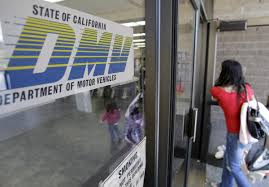
Driving under the influence (DUI) is a serious and complex issue in Orange County. California imposes strict laws and penalties to deter such behavior and protect public safety. Among the critical elements of DUI enforcement is the requirement for drivers to submit to chemical testing if suspected of being under the influence of alcohol or drugs. Drivers MUST submit to testing, even without consulting their Orange County DUI attorney. Refusing to take a chemical test in Orange County can have significant legal repercussions and makes your case more difficult for your DUI attorney. This article will provide an in-depth examination of the consequences faced in both the Orange County court system and the Department of Motor Vehicles (DMV) when a driver refuses a chemical test.
The Legal Framework of Chemical Testing in California
Implied Consent Law
California’s “implied consent” law, Vehicle Code 23612, requires that all drivers who are legally detained or arrested on suspicion of DUI must submit to a chemical test—either a breath, blood, or, in some cases, urine test. A driver must submit without the privilege of discussing it with their Orange County DUI lawyer first. By obtaining a driver’s license, individuals implicitly agree to this requirement. The objective is to determine the blood alcohol content (BAC) or the presence of drugs in the driver’s system.
Legal Basis of Chemical Tests
Law enforcement officers usually administer these tests after establishing probable cause, based on observations such as erratic driving, slurred speech, poor performance on field sobriety tests, or the odor of alcohol. The refusal to comply with chemical testing has both immediate and long-term consequences.
Refusal of Chemical Test: Immediate Consequences

Administrative License Suspension
Upon refusing a chemical test, law enforcement officers will typically confiscate the individual’s driver’s license immediately. The officer will issue a temporary license valid for 30 days, allowing some time for the driver, or their Huntington Beach DUI attorney, to challenge the suspension through an administrative hearing with the DMV.
Notice of License Suspension
The officer will also provide a “Notice of Suspension,” which serves two purposes: to inform the driver of the impending suspension and offer instructions on how to request a DMV hearing. It is pertinent to note that there is a strict 10-day window from the date of issuance for you or your DUI attorney to request a hearing.
DMV Hearing and Proceedings
What Happens at a DMV Hearing?

The DMV hearing focuses exclusively on the issue of whether the driver refused the chemical test and if the officer had sufficient cause to detain the driver. Unlike criminal court hearings, DMV hearings are administrative in nature and do not address guilt or innocence concerning DUI charges. Because there is no right to a jury, these hearings can be difficult for a Huntington Beach DUI lawyer to win.
Possible Outcomes
If the DMV upholds the suspension, the license is typically suspended for one year for the first offense, two years for a second offense, and three years for a third offense. The refusal to take a chemical test can also affect the length and severity of the suspension compared to a suspension simply for a DUI conviction. With a refusal, the driver cannot obtain ANY type of restricted license.
Criminal Court Proceedings

Arraignment and Preliminary Hearings
When the case reaches criminal court, it begins with an arraignment where you, or your Orange County DUI lawyer standing in for you, is formally advised of the charges and enters a plea. Subsequent legal procedures, including preliminary hearings and negotiations between your DUI attorney and prosecutor, determine how the case progresses.
Legal Penalties for Refusal
Refusing a chemical test can lead to additional penalties, which may include increased jail time, higher fines, and more extended DUI education programs if convicted. These penalties are often in addition to those imposed for the DUI itself, creating a compounded impact of legal repercussions.
Use of Refusal as Evidence
Prosecutors often argue that refusing the chemical test indicates a “consciousness of guilt,” which can be presented as evidence in court. This means the refusal can potentially sway a jury or judge, making it more challenging for your Huntington Beach DUI attorney to defend against DUI charges.
Defenses Against Refusal Charges
Challenging the Initial Stop
One of the primary defense strategies used by Orange County DUI lawyers is to challenge the legality of the traffic stop. If it can be demonstrated that the officer lacked probable cause, the entire case—including the refusal—may be dismissed.
Procedural Errors
Another common defense is to identify procedural errors in the administration of the chemical test. For example, the officer failing to inform the driver of the consequences of refusal can be a strong defense by your DUI lawyer. The law requires a clear reading of the consequences to the driver before a refusal charge can be sustained.
Medical and Physical Incapacity
In some cases, drivers may be physically incapable of completing the test due to medical conditions. Documenting and proving this can serve as another effective defense strategy for your Orange County DUI lawyer.
Long-Term Consequences of Refusing a Chemical Test
Impact on Future DUI Charges
Refusing a chemical test can have lasting impacts beyond immediate penalties. Future DUI charges will be considered in the context of the refusal, potentially leading to harsher sentences and longer license suspensions.
Increased Insurance Rates
A refusal can also significantly affect auto insurance premiums. Insurance companies often view such refusals as high-risk behavior, thereby raising rates or even refusing to renew policies.
Employment Implications
For individuals whose job responsibilities include driving, losing a license or being convicted of DUI charges can lead to job loss or diminished employment opportunities, compounding the impact of the refusal.
Practical Tips for Drivers
Know Your Rights
Understanding your rights during a DUI stop is crucial. While refusing a chemical test carries severe penalties, being fully informed about potential consequences can guide decision-making in such stressful situations.
Legal Representation by a Skilled Huntington Beach DUI Attorney

Securing competent legal representation is essential when facing a DUI refusal charge. Experienced DUI attorneys can navigate both DMV hearings and criminal court proceedings, increasing the likelihood of a favorable outcome. The Law Office of EJ Stopyro offers a free and confidential consultation with an experienced Huntington Beach DUI attorney. Call us today at (949) 278-6353 to schedule your consultation.
Compliance with Sanctions
Adhering to any imposed sanctions, such as attending DUI education programs or complying with license suspension terms, is crucial. Non-compliance can lead to further legal complications and delayed reinstatement of driving privileges.
Refusing a chemical test in California triggers a series of complex legal challenges both in court and at the DMV. While the immediate reaction may be a form of resistance, the broader implications underscore the importance of understanding the legal landscape and seeking skilled legal guidance. Driving is a privilege that comes with responsibilities, and being informed about California’s DUI laws is integral to maintaining that privilege.